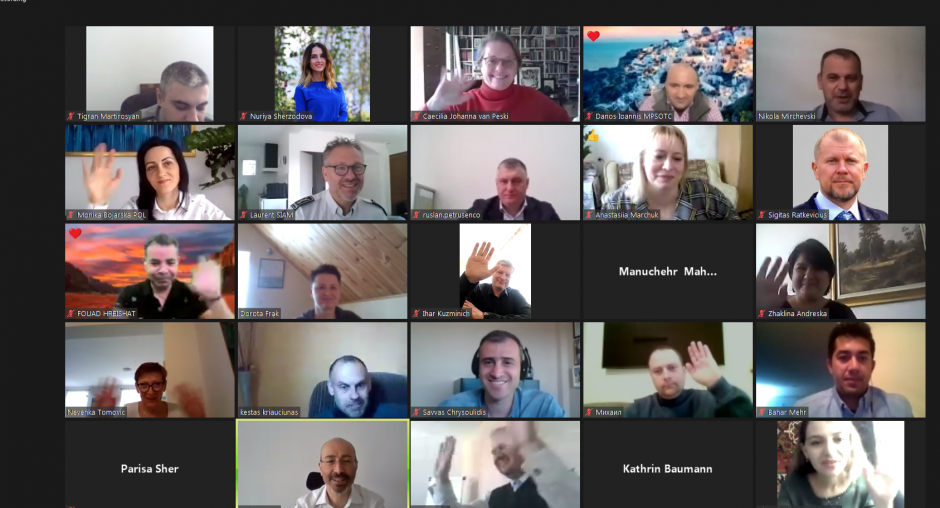The fourth Border Security and Management for Senior Leadership course: Completion of module two

Twenty-seven officers and managers of various border security and law enforcement agencies from fifteen countries across the OSCE region completed the second module of the one-year Border Security and Management for Senior Leadership course on 29 April 2021. Due to the pandemic and the restrictions on travel, the traditional face-to-face phase of the second module was held via video teleconferencing.
The OSCE Border Management Staff College (BMSC) conducted the course in collaboration with the Geneva Centre for Security Sector Governance (DCAF).
Participants represented Armenia, France, Greece, Lithuania, Moldova, Mongolia, the Netherlands, North Macedonia, Poland, Portugal, Spain, Tajikistan, and Ukraine, as well as three of the OSCE’s Partners for Co-operation: Afghanistan, Egypt, and Jordan.
The second module offered a comprehensive teaching curriculum to enhance competence and upgrade leadership and management skills of mid-to-senior level border officers. “Two weeks of video conferencing instead of face-to-face learning proved to be quite successful due to the discipline and engagement of the participants, as well as the commitment of the BMSC and DCAF expert teams,” said Nevenka Tomovic, Border Security Programme Expert for Education and Training at the DCAF and the leading expert of module two.
Vitaut Rudnik, an organizational development and management expert and instructor of the module, noted that it is very interesting “to adapt traditional teaching methods to the new format and apply innovative strategies to keep the participants diligently involved in the learning process.”
Key topics addressed during the online session included management, leadership, integrity, managerial decisions in a crisis, project management, and planning. Sirarpi Ohanyan, Lieutenant, Inspector of the Customs Service of the Republic of Armenia and course participant said that the sessions dealing with psychological and organizational aspects of border management were of particular interest to her.
Following the conclusion of Module 2, participants are now undergoing post-module tasks and embarking on the final stage of the one-year course, which concentrates on identifying current and emerging trends in border security management.
The course is accredited by the Estonian Quality Assessment Council for Higher Education (EKKA) and equals an internationally recognized one-year postgraduate diploma course.
